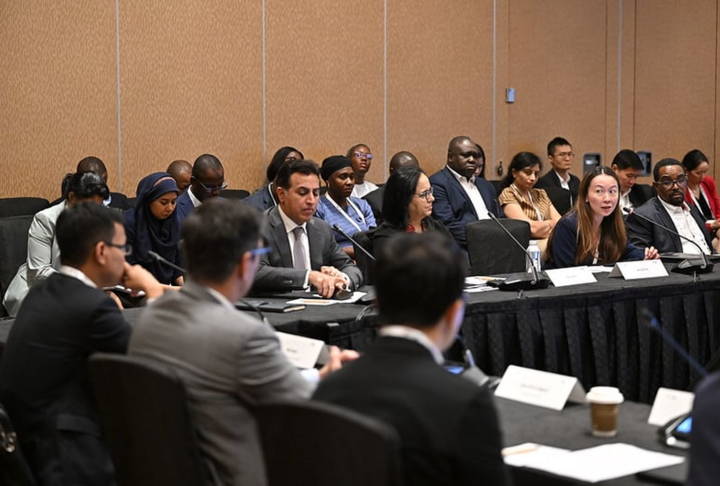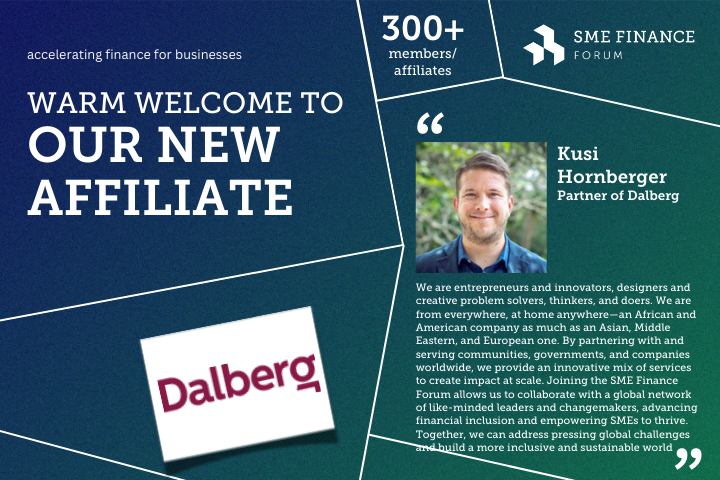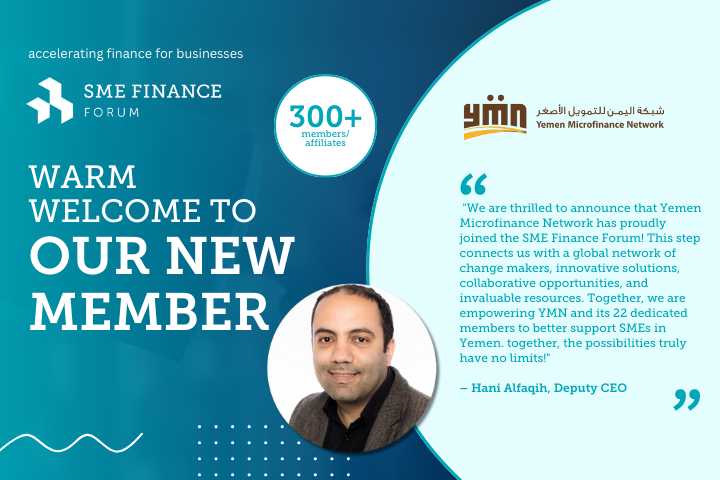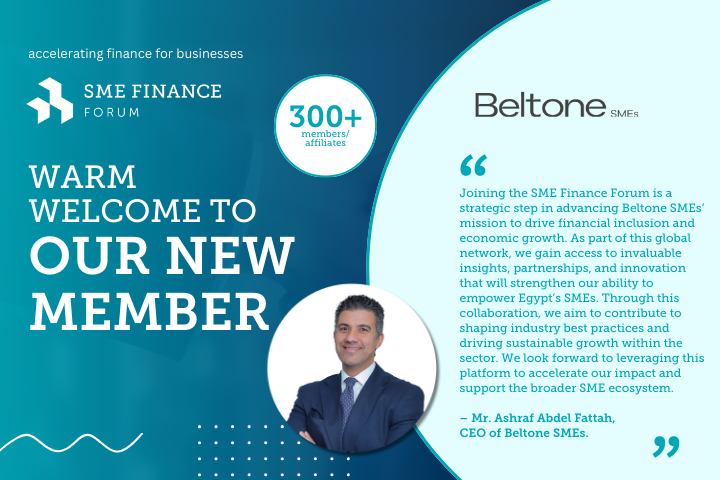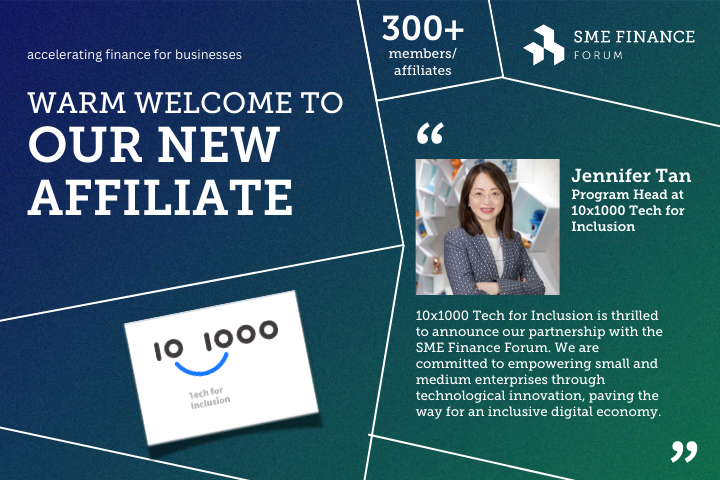In November 2023, the United Nations Development Programme (UNDP) moderated the closed-door roundtable "How Universal Trusted Credentials (UTC) can transform financial inclusion". This event brought together senior representatives from central banks, financial institutions, and other stakeholders from around the world to discuss the opportunities and key insights of how the UTC initiative can support underserved enterprises in accessing financial services globally.
Introduction
While they represent the building blocks of every country’s economy, micro, small and medium-sized enterprises (MSMEs) still face structural gaps in accessing affordable finance needed to build their businesses and capitalise on new opportunities. While the specifics may differ from businesses to businesses, there are a few main barriers that have been identified. These barriers are the lack of collateral, the lack of auditable performance track record, unverified data, and financial literacy gaps. This problem is also worsened by MSME’s informality and fragmented regional and global approaches that continue to reinforce existing financial exclusion. MSMEs confront an alarming annual financing gap of US$5.2 trillion content 1, with those operating in the informal sector particularly susceptible. These informal enterprises, which play a pivotal role in job creation (constituting between 80 and 90 percent of the workforce in low- and middle-income countries), face compounded difficulties due to their informal status.
The Universal Trusted Credentials (UTC) is a global framework of indicators designed to derisk the underwriting of financial institutions for micro, small and medium-sized enterprises, including informal ones, and make it easier for them to access national and regional financing pools. The data points used with the UTCs are exclusively sourced from authoritative data sources and selected based on their relevance and utility to financial institutions for evaluating an enterprise’s intent and ability to pay. The framework facilitates more efficient, cost-effective, and higher levels of financing and financial services, particularly benefiting MSMEs that often face restricted access to financing or heightened collateral requirements due to lack of verified data. The UTC is essentially a trust mechanism between MSMEs and lenders: by leveraging a digitally-enabled, immutable and interoperable creditworthiness profile of an MSME (which is owned by the MSME itself), the UTC derisks borrowing from financial institutions (FIs).
Throughout the roundtable, the diverse group of participants investigated the opportunities and pathways through which the UTC framework can be operationalised. Three key insights have emerged from the roundtable.
Key Insights
#1 Complementing traditional data with alternative data creates a more comprehensive creditworthiness profile, with digitalisation further reinforcing the level of trust from financial institutions
To date, when MSMEs apply for a loan with a FI, their creditworthiness is determined via 'traditional ways’ – such as using in-house data and lending history. However, MSMEs often have no such pre-existing data to showcase, or the data that they possess has not been robustly verified. In contrast, the proposed UTC framework considers additional alternative data points which can demonstrates a business’ ability and trustworthiness in meeting the contractual obligations of its loans. For example, data points on the consistent fulfilment of supply contracts or the active and timely repayment of utility bills demonstrate an MSME’s ‘intent to pay’, and data points on verified trade volumes on e-commerce platforms together with mobile money and digital payments contribute to the ‘ability to pay’ profile.
When combined, the traditional and alternative data sets construct a more complete picture of the creditworthiness of an MSME, which helps to facilitate the financial inclusion of previously underserved businesses, especially informal ones. Additionally, leveraging digitalisation for the verification and credentialing mechanism further reinforces the trust with FIs and derisks their operations, both domestically and at a transnational level, as noted by one of the participants.
#2 The business case for financial inclusion: Reduced costs for financial institutions and enhanced data privacy
Not only is there an impact case for the UTC – that is, promoting financial inclusion for MSMEs, enabling their formalisation, increasing their access to business opportunities (domestically and cross-border) and more generally empowering underserved communities and employees. There is also a complementing business case to be made for it, as remarked by the speakers. Currently, it is costly and time-intensive for banks to perform Know Your Business (KYB) and due diligence (DD) activities prior to making a decision on whether to extend loans or other financial resources to MSMEs. Such innate costs often negatively impact the decision itself. While the data that is required might exist, it is neither accessible by or shared with other parties. This raises a fair question: What if FinTechs, local tax authorities and credit bureaus come together and collaborate to reduce the cost of doing KYB and DD, and to enhance data usage, all while ensuring data privacy and security? This is a solution that the UTC framework enables. For example, if a Tax Identification Number is the data indicator required, then the data point that has to be delivered would be digitally verified by the local tax authority itself via a UTC Platform. This mechanism, currently being tested with the UTC initiative, opens up the possibility for further cost reduction and enhanced data usage.
#3 Appropriate governance mechanisms and whole-of-ecosystem collaboration are key for success and scalability
Throughout the roundtable, participants stated how collaboration between actors will be crucial to achieve success and scalability of the UTC initiative. Continued private-public collaboration is indeed instrumental to effectively launch and scale new initiatives such as the UTC. This involves not only securing the support of regulators to establish trusted frameworks that convey the same level of trust and quality of the data across countries, but also engaging with development institutions, FIs, FinTech operators, and MSMEs associations. Fostering local ecosystems and testing implementation use cases via pilots in selected countries is crucial for learning what works and what are areas for improvement. All of this serves to further inform the operationalisation of the UTC in a way that benefits financially excluded MSMEs, and is also interoperable—thereby expanding access to finance and creating cross-border trade opportunities for them. Moreover, in order to facilitate the adoption of the UTC framework globally while also keeping in mind local specificities, an appropriate tiered governance structure will need to be designed within the UTC initiative. The continuous refinement of the UTC framework via the ecosystem engagement, pilots, and establishment of governance structures will enable it to rapidly scale and be implemented in additional countries, further expanding the number of MSMEs positively impacted by the initiative. This expansion will be instrumental in bringing aboard more MSMEs into the formal financial system, demonstrating the transformative power of the UTC for empowering financial inclusion and economic growth.
About the UTC initiative
The United Nations Development Programme (UNDP) and the Monetary Authority of Singapore (MAS) are working together on the UTC project. We jointly launched a White Paper on the UTC at the Singapore FinTech Festival in November 2023, and are currently testing use cases in Ghana, Cambodia, Indonesia, and Rwanda.
The implementation of the initiative in selected countries builds on four pillars, which have been designed following extensive consultations and feedback from stakeholders, including the key insights that emerged from this roundtable. The four pillars include: Ecosystem engagement; Data infrastructure and UTC Platform developments; Capacity building, training and awareness for MSMEs; and Pilot and use case developments.
About United Nations Development Programme
As the United Nations lead agency on international development, UNDP works in 170 countries and territories to eradicate poverty and reduce inequality. UNDP helps countries to develop policies, leadership skills, partnering abilities, institutional capabilities, and to build resilience to achieve the Sustainable Development Goals. UNDP partners with people at all levels of society to help build nations that can withstand crisis, and drive and sustain the kind of growth that improves the quality of life for everyone.
For up-to-date information and developments of the UTC, please visit the following website: UNDP Global Centre UTC Microsite: https://www.undp.org/policy-centre/singapore/events/join-us-singapore-fintech-festival-2023
For parties interested to provide thoughts, inputs, suggestions and indications of interest to partner in the adoption of the UTC, please reach out to: Aiaze Mitha (aiaze.mitha1@undp.org) or Francesca Puricelli (francesca.puricelli@undp.org).


